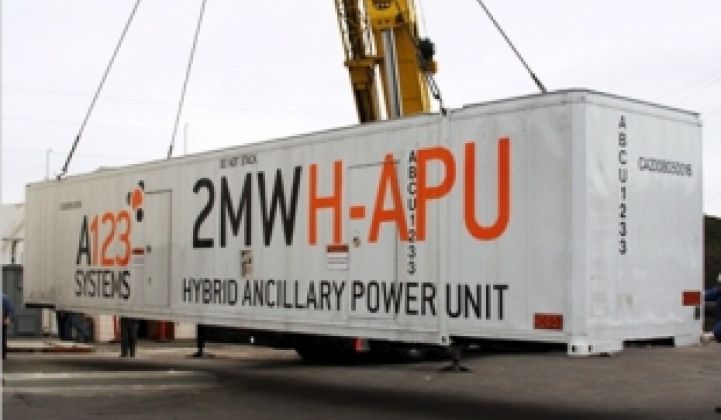Bankrupt battery maker A123 may be set for a $256 million takeover by Chinese automotive equipment giant Wanxiang, with or without the approval of Congress. But one of the first bills out of the new Congress wants to put the brakes on any such future transfers of federally funded, security-sensitive technology to foreign entities.
That’s the idea behind a bill proposed by U.S. Rep. Marsha Blackburn (R-Tenn.) this week. Called SMART-SALE, it would require a Department of Energy review the next time a U.S. company with DOE backing gets bought by a “non-allied foreign nation or its citizens.” That review would include the development of a “threat assessment” to present to Congress, and would also tie repayment of DOE loans to any sale.
All of these issues have come up in the intense lobbying after Wanxiang won the bid to acquire the majority of A123’s assets last month (its military assets went to Illinois-based Navitas Systems for $2.25 million). Johnson Controls, which was outbid, has since filed an appeal to the sale in U.S. Bankruptcy Court in Delaware, amidst courtroom accusations from creditor attorneys that it and other U.S. corporate interests are lobbying in Congress to stop Wanxiang’s bid.
Rep. Blackburn has been one of a number of members of Congress to speak out against Wanxiang’s takeover of A123’s assets, which include battery and energy storage management technology that could be put to use in military applications, they say. Others have pointed out that the same could be said of many technologies at the heart of today’s greentech revolution, as well as strategic materials such as rare earths.
A123 has already been under investigation by Congress over its $249.1 million in DOE grants, of which about $130 million have been drawn, mainly to build and run its factories in Michigan. Wanxiang has agreed to forego the balance of those loans, but under the SMART-SALE bill, it would also have to repay all the loans and grants provided by the U.S. government.
The bill would also require a report on the technology rights held by the federal government, the value of the federal investment, and an assessment of whether or not the transfer represents a cybersecurity risk -- a category that hasn’t intruded yet on the debate over A123, though it has certainly cropped up in terms of the smart grid.
Even if it passes, the bill wouldn’t have a retroactive effect on the A123 bankruptcy sale. The Committee on Foreign Investment in the United States (CFIUS), a Cabinet-level group that last year blocked the Chinese takeover of a wind farm in Oregon, is reviewing the sale, and has a deadline of January 15, 2013 to make a decision.
We’ve seen plenty of investigations into DOE-backed companies that have gone under in the wake of Solyndra’s bankruptcy. A123’s case is different in that it has a market-tested technology for Wanxiang (or whoever ends up owning it) to build on -- even if it was a massive recall that led to it going bankrupt in the first place. A123’s automotive and grid energy storage partners are no doubt weighing the risks of dealing with a company that is at the center of such uncertainty -- and are keeping a close eye on CFIUS’ pending decision, as well as legislation that could further complicate matters.



